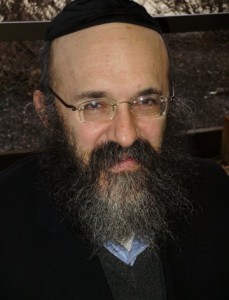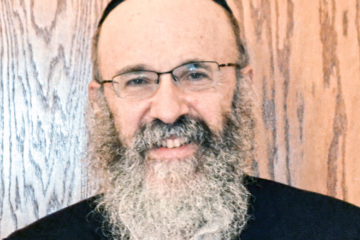You, the tree, and the Torah

By Rabbi Shmuel Klatzkin, Chabad of Greater Dayton
I remember walking into the classroom at Brandeis shortly after I had decided that I had a much more urgent desire to study Judaism than my major, psychology. I came from a place where we identified unequivocally as Jews but were sparse with observance. Wrestling with texts in Hebrew was something I didn’t know and hadn’t seen, but in a university setting, it didn’t seem too daunting.
The professor was Dr. Alexander Altmann, a man of immense erudition and learning. He had received his ordination from the main Orthodox seminary in Germany and had gone on to receive his Ph.D. summa cum laude from the University of Berlin.
He had fled Germany when one still could, and had established a reputation as an expert in medieval Jewish philosophy (who dealt with sources in the original Arabic as well as Hebrew), the Kabalah, and Moses Mendelssohn.
I knew none of this about him then, but he captured me instantly by the way he sat down, every move deliberate, put on a yarmulke, and began reading.
The course was on the Book of Psalms. He opened to the beginning of the Hebrew text that contained both the Psalms and classic rabbinic commentaries, and he began to read.
I knew precious little Hebrew at that point. I could follow his reading and I could understand the words because I had an English translation.

What got me was the deep pleasure that was palpable in his voice as he read. “Ashrei ha’ish,” he read, drawing out the final sh sound for a good two seconds, lingering in its spell. “Ashrei ha’ish” — happy is the person who, shunning the scoffers and the scorners, desires Torah of God, and in His Torah meditates day and night.
There was a lot of work that followed. Learning a language well enough to understand its poetry was not a quick and easy process for me. But after that moment in that first class, it was all just part of following my deepest desire. Of course, it led to meditation and thought upon its every aspect, day and night. Who would want less than that?
Psalm 1 continues by comparing someone whose desire is in God’s Torah to “a tree planted by streams of water, which yields its fruit in season, whose foliage never fades, and whatever it produces thrives.”
That simile spoke to me then. I loved the outdoors, and had spent many happy hours and sometimes days in the woods, whether in the Sierras or in New England. It was a powerful antidote to the craziness that sometimes seemed to swirl all about. How much did I desire to make my life full of the simple beauty, life and sanity of a fruitful tree.
Deuteronomy asks the question: “For is a tree of the field a person?” But the Hebrew can also be read as a positive statement, dressed in a rhetorical question: “For is a person not a tree of the field?”
Looking at the hierarchy of being, isn’t looking at a tree looking downward? A tree doesn’t talk. It doesn’t move from its place. It doesn’t seem to show feelings. Why should we aspire to that?
Yet our picture of paradise — even the very word paradise itself — has trees at the center of it. Even the ultimate speech, the Torah itself, is called a tree, and synagogues around the world quote Proverbs when returning the Torah to the ark, saying or singing “Etz chaim hi lamachazikim ba — It is a tree life to those who hold fast to it.”
The Torah and the one whose desire is in Torah are both then united in the image of the tree. Think of that, please. Certainly, the Torah contains deep abstract thought, sober and far-seeing legislation, history, poetry, moral vision, mystical depths, and much, much more.
But for me, it was the simple beauty of a tree that encompassed the image of what went on in the first of a long line of classes and programs of study and continues alive and thriving till today.
Make sure the Torah in your life is planted outdoors. While the cold winds still blow, look out your window as you take a few minutes of your day to study your heritage, and see that tree.
When the weather gets warm, go out every now and again and take your Jewish book and study in its shade and feel within the text and within you the rightness of what you and the tree and the Torah are all doing together. As you savor the fruit you eat on Tu B’Shevat, Jan. 31, may you savor at the same time the blessings that you in Jewish life, you too may be fruitful and thrive.
To read the complete February 2018 Dayton Jewish Observer, click here.



